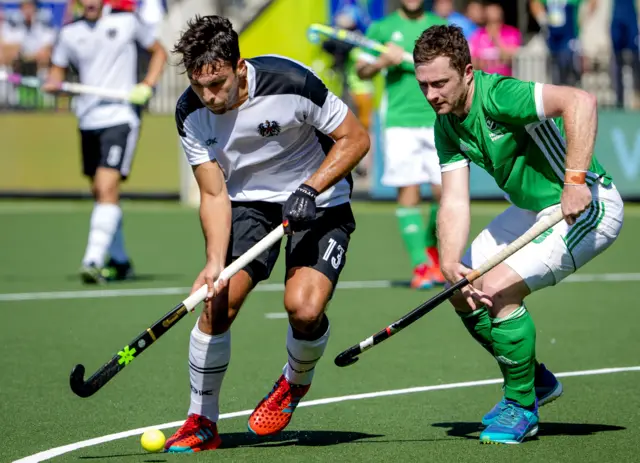Brilliant Belgians face tough testpublished at 14:44 BST 21 August 2019
World champions and pre-tournament favourites Belgium have been in scintillating form, cruising through their pool without conceding a single goal.
A 5-0 win over Spain was followed by a 2-0 defeat of England and a crushing 6-0 win against a Wales side who struggled to cope with a Belgian masterclass on home soil.
Belgium were defeated in the final by the Netherlands last time and need to overcome a strong German side if they want to go one better. The Germans were narrowly defeated by the Dutch in their Pool B encounter but thrashed both Ireland and Scotland - the latter 9-0 - to make sure of their place in the semi-finals.
